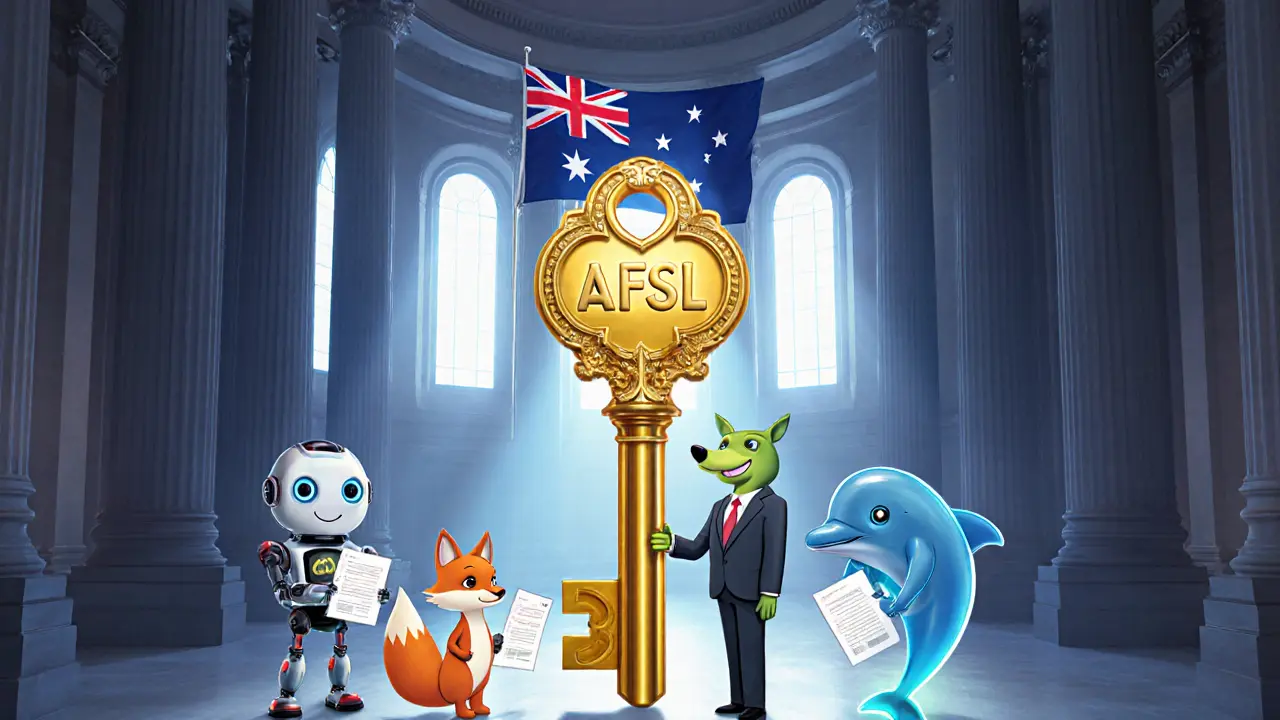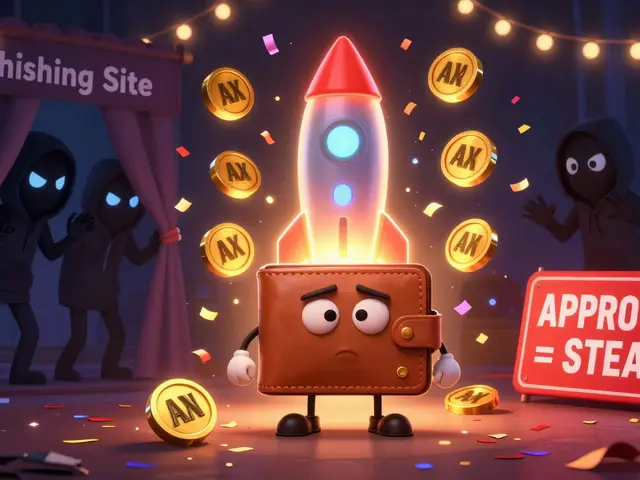Australia is tightening the screws on crypto scams, misleading adverts, and risky platforms. The crypto consumer protection Australia push hinges on a draft law that could reshape how digital assets are sold, stored, and advertised. If you’re a trader, an investor, or a crypto‑exchange looking to operate down under, you need to know what the new rules demand and how they affect you.
What the current landscape looks like
Right now, crypto businesses juggle a patchwork of rules. AUSTRAC administers anti‑money‑laundering (AML) and counter‑terrorism financing (CTF) obligations, requiring all digital‑currency exchange providers to register and run KYC checks. Meanwhile, the Australian Securities and Investments Commission (ASIC) polices crypto‑assets that fall under the definition of a financial product, enforcing licensing, disclosure and consumer‑protection standards. Even assets that slip through the financial‑product net are still covered by the broader Australian Consumer Law prohibits misleading or deceptive conduct in any commercial context.
This fragmented approach left investors uncertain about who to trust and gave bad actors room to exploit loopholes - a problem that became painfully clear after the 2022 FTX collapse.
The draft bill that could end the confusion
The government’s answer is the Treasury Laws Amendment Bill 2025: Digital Asset, and Tokenised Custody, Platforms a legislative package that folds crypto platforms into the existing Corporations Act 2001. The bill proposes two new product categories:
- Digital Asset Platforms (DAP) - exchanges and marketplaces that let users buy, sell or trade crypto‑tokens.
- Tokenised Custody Platforms (TCP) - services that hold or safeguard tokenised assets on behalf of customers.
Both categories will be collectively referred to as “crypto platforms”. The key change? Every platform will need an Australian Financial Services Licence (AFSL) the same licence required for banks, brokers and other financial service providers. The AFSL brings a full suite of conduct, disclosure, competence and dispute‑resolution rules to the crypto world.
Who must get licensed and who is exempt
The bill draws a line based on risk. High‑risk platforms - those handling more than $5,000 per customer or exceeding $10 million in annual transaction volume - will be forced to apply for an AFSL. The penalty for non‑compliance can top $16.5 million, a figure designed to deter will‑ful disregard.
Low‑risk outfits - for example, a hobbyist service that lets a handful of users swap under $5,000 each - will be exempt. This exemption aims to keep the threshold low enough not to crush small, innovative startups while still protecting the broader market.
What the licence actually means for operators
Holding an AFSL isn’t just a stamp of approval; it brings a checklist of obligations:
- Conduct and disclosure: All marketing material must be clear, not misleading, and must include risk warnings.
- Competence and training: Senior managers need documented proof of crypto‑market knowledge and ongoing professional development.
- Conflict‑of‑interest management: Platforms must have policies to prevent staff from profiting at users’ expense.
- Risk‑management protocols: Robust systems for market, operational and cyber risk are mandatory.
- Dispute‑resolution mechanisms: An internal complaints process and access to the Australian Financial Complaints Authority (AFCA) are required.
- Compensation arrangements: If a platform fails, there must be a clear fund or insurance to cover eligible customer losses.
On top of those AFSL duties, the existing AML/CTF rules still apply. That means continuous transaction monitoring, filing suspicious‑activity reports with AUSTRAC, and maintaining detailed records for at least seven years.

Which assets fall under the new rules?
The bill casts a wide net. It treats Bitcoin, Ether and other “cryptocurrency‑like” tokens as digital assets. It also covers “collectible‑like” assets such as non‑fungible tokens (NFTs) used for art or membership, and “bearer‑like” assets like stablecoins and tokenised securities.
There are two notable carve‑outs:
- Gaming‑related NFTs are excluded, as regulators see them more as in‑game items than investment products.
- Token issuers that use tokens purely for non‑financial purposes (e.g., loyalty points) are not forced to hold an AFSL, though they remain subject to general consumer‑law rules.
How the changes boost consumer protection
By pulling crypto platforms into the same regulatory cage as banks and brokers, the government aims to "legitimize good actors and shut out bad" - words from Assistant Treasurer Daniel Mulino who leads the Treasury’s digital‑asset agenda. The benefits for everyday users include:
- Clearer red‑flags: If a platform lacks an AFSL, investors can spot that instantly.
- Higher standards for marketing: ASIC’s crackdown on deceptive crypto ads will apply, meaning you’ll see more balanced risk disclosures.
- Recourse options: Should a platform collapse, AFCA can step in to resolve complaints and potentially reimburse losses.
- Reduced fraud risk: Mandatory AML/CTF programmes make it harder for bad actors to hide behind anonymity.
Industry reaction - support with caution
Local exchanges are largely on board. Independent Reserve an Australian crypto exchange that operates across APAC and BTC Markets another leading Australian exchange have publicly praised the move, saying it will give investors confidence.
Kate Cooper CEO of OKX Australia summed it up: “The draft legislation is the clearest signal yet that crypto is no longer operating on the fringes, and is now embedded in the financial system.” She added that success hinges on effective enforcement so that licensed operators aren’t undercut by rogue players.
Legal experts echo the sentiment. Liam Hennessy partner at Thomson Geer, a law firm specializing in fintech calls the bill “critical for sector growth” because it balances innovation with consumer safeguards.

Practical checklist for crypto businesses
| Item | Requirement | Typical Deadline |
|---|---|---|
| AFSL Application | Submit to ASIC, demonstrate competence, risk controls, and capital adequacy | 12‑18 months from decision to apply |
| AML/CTF Programme | Implement KYC, transaction monitoring, SAR filing to AUSTRAC | Immediately on launch |
| Disclosure Documents | Clear risk warnings, fee breakdown, conflict‑of‑interest policy | Before any public marketing |
| Complaint Handling | Internal process + registration with AFCA | Within 30 days of AFSL approval |
| Compensation Fund | Secure insurance or escrow to cover client losses | Before accepting customer funds |
What’s next - timelines and next steps for consumers
As of October 2025, the Treasury is still gathering feedback. The consultation period ends today, and a final version of the bill is expected to be introduced to Parliament in early 2026. Once passed, a transition period of roughly 12 months will give platforms time to secure an AFSL.
For consumers, the key take‑aways are:
- Check the ASIC register before signing up with any exchange. If the platform isn’t listed, treat it with caution.
- Read the fine print. Look for explicit risk disclosures and a clear complaints pathway.
- Prefer platforms that already hold an AFSL - they’ll already be meeting the higher standards.
- Stay alert for marketing that promises guaranteed returns; under ASIC’s rules that’s a red flag.
In short, the upcoming regulations aim to turn the Wild West of crypto into a more predictable marketplace while still allowing innovation to flourish.
Frequently Asked Questions
Do I need an AFSL to buy Bitcoin as a consumer?
No. The AFSL requirement applies to platforms that facilitate buying, selling or custody of crypto for customers. As an individual investor, you just need to use a platform that already holds the licence.
Are NFTs used in video games covered by the new law?
No. Gaming‑related NFTs are expressly excluded, so they remain outside the licensing regime, though standard consumer‑law rules still apply.
What happens if a platform breaches the AML/CTF rules?
AUSTRAC can levy fines, issue enforceable undertakings, or refer the matter to ASIC for further action. Repeated breaches can trigger the $16.5 million penalty under the draft bill.
Can a small hobbyist token‑swap service operate without an AFSL?
Yes, if its total transactions stay below $10 million a year and no single customer exceeds $5,000. Such low‑risk services are exempt, but they still must follow AML/CTF obligations.
Where can I verify if an exchange holds an AFSL?
The ASIC Professional Register is the official source. Search by the company name or Australian Business Number (ABN) to see the licence status.





Write a comment